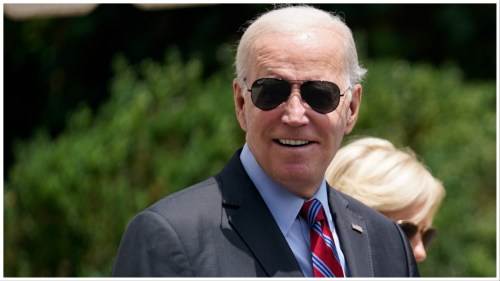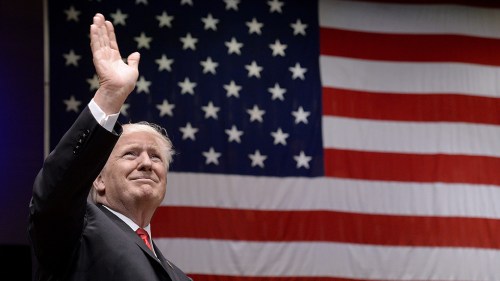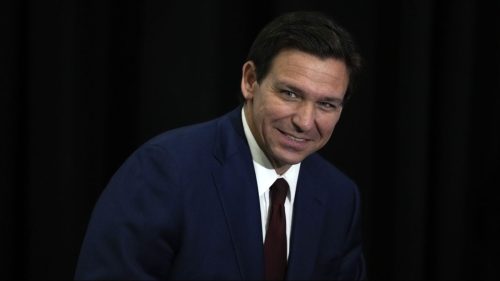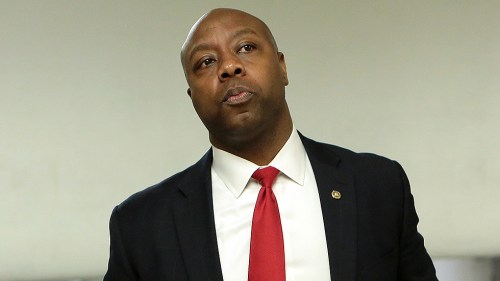Here are the major ballot measures to watch in 2024

Voters across the country are set to weigh in this fall on a host of key issues, from abortion to primary systems, through ballot measures.
Ballot measures have become a bigger election factor in recent years, especially as advocates work to push forward state-level abortion protections after the Supreme Court overturned Roe v. Wade in 2022.
A new ruling from the Federal Election Commission could also add fuel to ballot measure efforts nationwide, by allowing federal candidates to raise unlimited funds for groups working on the initiatives. Millions have already been poured into various measures this cycle.
Six months out from Election Day, here are the initiatives — both already on the ballot and still working to get there — to watch in key states.
Abortion rights
Efforts are underway in at least a dozen states this cycle to try and enshrine abortion rights in state constitutions, shoring up reproductive freedoms after the Supreme Court stripped federal protections for the procedure.
Measures are already on the ballot in Florida, New York and Maryland, and advocates are working on gathering signatures in key battlegrounds, like Arizona and Nevada, as well as redder states where restrictions loom, like Montana and Nebraska.
Organizers in Missouri and South Dakota last week announced they’d gathered enough signatures to move proposed amendments forward in both states, kicking the measures closer to the November ballot.
“The abortion measures are the obvious big, big measures happening this year,” said Christopher Warshaw, a political science professor at the George Washington University.
“Everywhere where they’re on the ballot, they obviously have big, substantive applications [and] potentially, at least, could have political implications for the presidential race or other races.”
Seven states have voted on abortion since Roe fell. Voters in Michigan, California and Vermont approved measures codifying the rights during the midterms, and Ohio passed its own amendment last year. Montana, Kentucky and Kansas have rejected restrictions.
The ballot measures are seen as a boost to Democrats as voters look to greenlight the measures and elect abortion-rights candidates.
In New York, a blue state where abortion is already legal and isn’t under imminent threat, Democratic lawmakers nudged the effort forward amid hopes that it would juice turnout in several toss-up races that could be key to House control.
Primary restructuring
Open primary systems, which allow voters of any affiliation to vote in the primary of any party, could be on the ballot in several states this cycle.
In some places, voters could also decide whether to operate with ranked-choice voting, which allows voters to order candidates for the same office by preference. Just two states — Alaska and Maine — currently use the system.
Organizers are gathering signatures in Montana for an initiative that would amend the state constitution to implement an open top-four primary election system, which would mean all candidates appear on one ballot, and the four highest vote-getters advance to the general, regardless of party affiliation.
A similar effort for open primaries in Oregon was suspended back in February, but ranked-choice voting will be on the November ballot as a legislatively referred statute.
In Idaho, where primaries were open before the state GOP closed its system in 2012, organizers exceeded their signature goal to get a measure on the ballot that would create a nonpartisan, top-four system and let Gem State voters rank their choices.
Supporters submitted signatures Monday for a top-two open primary system in South Dakota.
And in Nevada, voters passed a ranked-choice voting change during the midterms. However, the state requires voters to give the system the green light in two consecutive elections in order to change the state constitution, according to The Nevada Independent, so the issue will be on the ballot again this November.
Meanwhile, in Alaska, an initiative qualified for the ballot that would repeal the Last Frontier’s ranked-choice system.
“They might not have that immediate impact that people see as affecting their day-to-day life,” said Amy Dacey, executive director for the Sine Institute of Policy & Politics at American University, of measures related to election operations. “But they could have a big impact in those states on how elections are run.”
Marijuana legalization
Another measure in Florida would change the state constitution to legalize recreational marijuana for anyone 21 years of age or older, with some limitations.
The measure would need to hit a high 60-point threshold to pass, but a promising University of North Florida poll from back in November found 67 percent of surveyed Floridians would vote yes on the amendment.
The Sunshine State push comes more than a decade after Washington and Colorado became the first states to legalize the recreational use of cannabis. It also comes as the White House plans to shift marijuana from a severe Schedule I drug, on par with methamphetamines, to the lower-risk Schedule III category.
South Dakota voters rejected an effort to greenlight recreational marijuana in 2022, but organizers are back at it again this year. The state’s deadline to collect the number of signatures required to qualify for the ballot was Tuesday. Organizers in North Dakota are also gathering signatures to legalize the drug, and a group in Nebraska is pushing to legalize medical cannabis through ballot initiatives.
“You’re seeing basically a bunch of liberal ballot initiatives because the state government has sort of stymied the popular will on these issues over the last couple of years,” Warshaw said of the abortion rights and marijuana legalization measures cropping up in some conservative states.
“The ballot initiative tends to be sort of a thermostatic sort of offset for whichever party controls the state government, another way for voters to enact what they want.”
Partisan school board elections
In another notable measure out of the Sunshine State, Florida voters will also decide this fall on a legislatively referred amendment that would make elections for school boards partisan starting in the 2026 cycle.
Right now, the elections are nonpartisan under a ballot measure approved back in 1998. The vast majority of states use nonpartisan systems.
But education has been center stage in Florida under Gov. Ron DeSantis (R), who signed the so-called Don’t Say Gay legislation and defended standards that limit how Black history can be taught in schools.
With three notable measures on November’s ballot, “everybody’s looking at Florida,” said Dacey.
Florida’s measures on abortion rights and marijuana legalization are citizen-initiated efforts, but the school board elections matter was put forward by the state’s Republican-controlled Legislature.
“It’s interesting to see who’s driving, trying to move these initiatives,” Dacey said.
Voting policy
A measure on the ballot in Connecticut would allow any voter to request a mail-in ballot, doing away with a requirement for an excuse in order to obtain one.
Organizers in several other states are also pushing forward efforts to require voter identification, make voter registration automatic, or require random precinct audits.
An initiative in progress would amend the Ohio Constitution to set up a citizen independent redistricting commission for drawing congressional and state General Assembly maps. Current or former politicians, party officials and lobbyists would be banned from taking part.
Ballot measures around system tweaks are not uncommon, and can often fly under the radar as attention is pulled to more headline-making efforts, like the abortion rights amendments on the ballot this fall — but some of these efforts could have meaningful impacts on the way elections are carried out moving forward.
Measures on voting policy, open primaries and ranked-choice systems are “big ones to keep an eye on,” Dacey said.
“Certainly, policy-related, legislative things will have an immediate impact,” she said, pointing to the abortion-related measures. “But then others are shaping elections for the future.”
Copyright 2023 Nexstar Media Inc. All rights reserved. This material may not be published, broadcast, rewritten, or redistributed. Regular the hill posts












